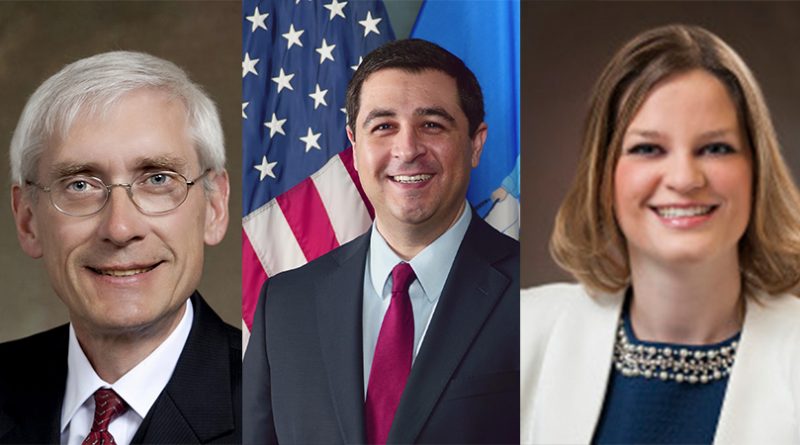Wisconsin Democrats express frustration over Court’s ruling
By Patrick Lynn
The state’s top Democrats say they’re frustrated with a 4-3 ruling on May 13 that struck down Gov. Tony Evers’ Safer at Home order.
The Justices ruled on Wednesday that the Evers’ administration exceeded its authority when Department of Health Services Secretary-designee Andrea Palm issued an extension on the Safer at Home order through May 26. The original order, intended to slow the spread of COVID-19, was scheduled to run through April 24.
The ruling also upsets Evers’ “Badger Bounce Back” plan, which called for reopening business and institutions in phases based on reaching certain benchmarks relating to a measurable decline in confirmed COVID-19 cases and other metrics.
“Up until now, Wisconsin was in a pretty good place in our battle against COVID-19. We had reached almost all our gating criteria. We had opened up 14,000 small businesses across the state, putting 90,000 folks back to work, and that was because of the good work of Wisconsinites across our state who banded together, stayed home, and stayed safe,” Evers said in an email statement Wednesday night. “Despite that good work, Republican legislators have convinced four Justices to throw our state into chaos.”
Evers said Wisconsin residents should “continue doing their part to keep our families, our neighbors, and our communities safe by continuing to stay safer at home, practice social distancing, and limit travel, because folks, deadly viruses don’t wait around for politicians and bureaucrats to settle their differences or promulgate rules.”
Wisconsin Attorney General Joshua Kaul said the Court’s ruling “struck down” the state’s plans to reopen safely, and argued the DHS did have the authority to extend the order to under state law, citing statute 252.02(3), (4), and (6).
“For decades, Wisconsin law has given the state’s chief health official the authority to ‘close schools and forbid public gatherings in schools, churches, and other places to control outbreaks and epidemics’; to ‘issue orders …for the control and suppression of communicable diseases’; and to ‘authorize and implement all emergency measures necessary to control communicable diseases,'” Kaul said. “These broad grants of authority show that prior generations of lawmakers recognized that addressing a public health crisis like the one we face now can require urgent and extraordinary actions.”
The Court’s decision, Kaul said, is subject to a legislative committee’s veto, adding the Republicans in the Legislature have yet to offer a plan to address businesses reopening safely during the pandemic. The GOP has said it will release its plan within 24 hours.
“In the middle of the fight against this virus, we need reasonable rules in place that protect Wisconsinites’ health,” Kaul said. “In the meantime, I ask all Wisconsinites to continue helping to fight the coronavirus by socially distancing and following other recommendations from public health experts.”
Assemblywoman Katrina Shankland, Stevens Point, said on her Facebook page that Wisconsin has made significant progress “as we have all worked together to flatten the curve, preserve vital healthcare resources, and limit the spread of COVID-19.”
“In striking down the Safer at Home order and requiring that new rules be made through the lengthy administrative rulemaking process, the Wisconsin Supreme Court did not provide the necessary time for the Legislature and governor to find a reasonable solution,” she said. “This creates a void in state-level leadership at a time when our state needs certainty and clarity.”
Shankland urged the Legislature to meet with Evers immediately to discuss and agree on a plan to manage the spread of COVID-19.

